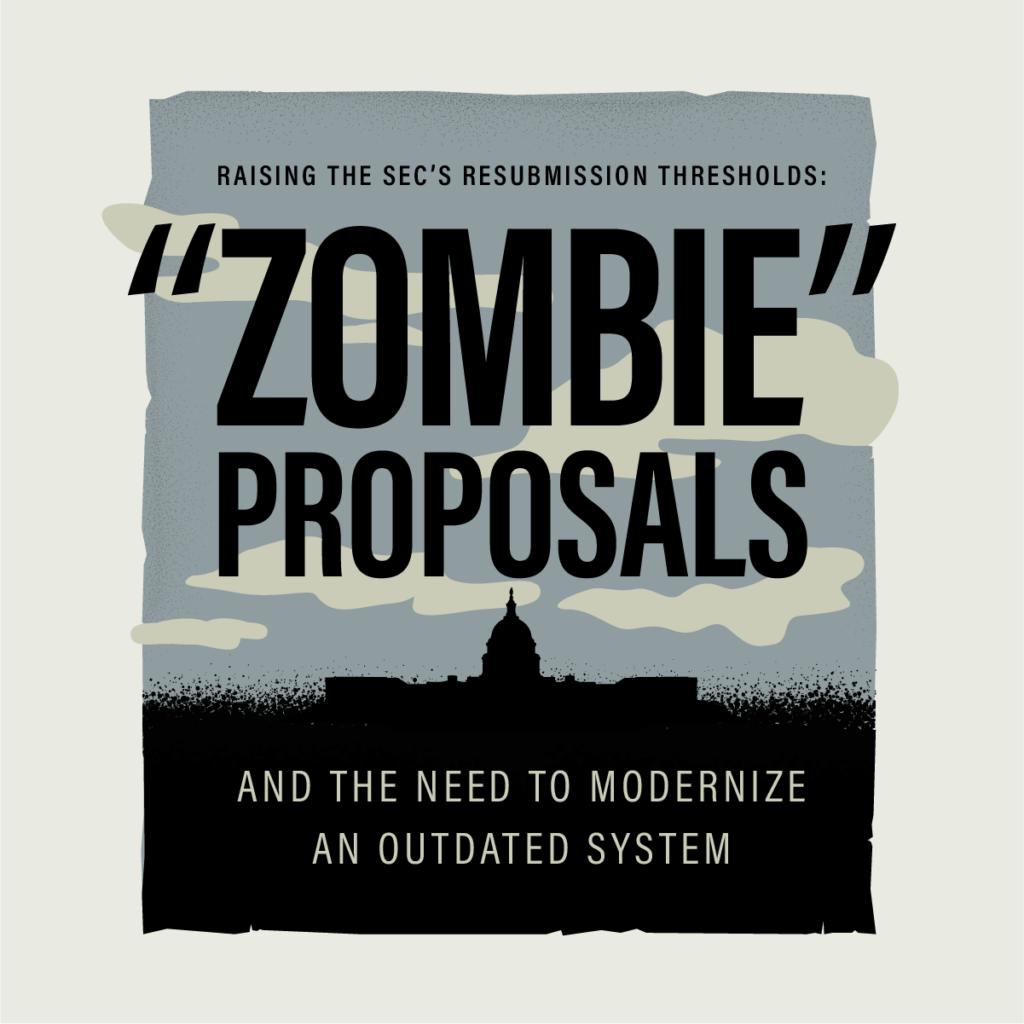The shareholder proposal system administered by the Securities and Exchange Commission (SEC) was designed as a means to facilitate constructive ideas from shareholders regarding the management of public companies. Unfortunately, this system has turned into one that is largely dominated by a small minority of activists that increasingly target American businesses over social or politically-charged issues. Compounding the problem, current SEC rules allow proposals that have received very low support to be resubmitted year after year, even if a vast majority of shareholders continually vote against them. In fact, over the last two decades, a large number of proposals have been submitted three or more times at companies without garnering majority support – thus becoming “zombie” proposals that stick around long after shareholders have decided they have no merit. This poses enormous costs not just in terms of corporate resources spent to deal with proposals every year, but also in terms of the distractions they create for management and boards, which have a duty to focus on the long-term best interests of the company. The U.S. Chamber strongly believes that reform of the shareholder proposal rules should be a top
priority for policymakers.


